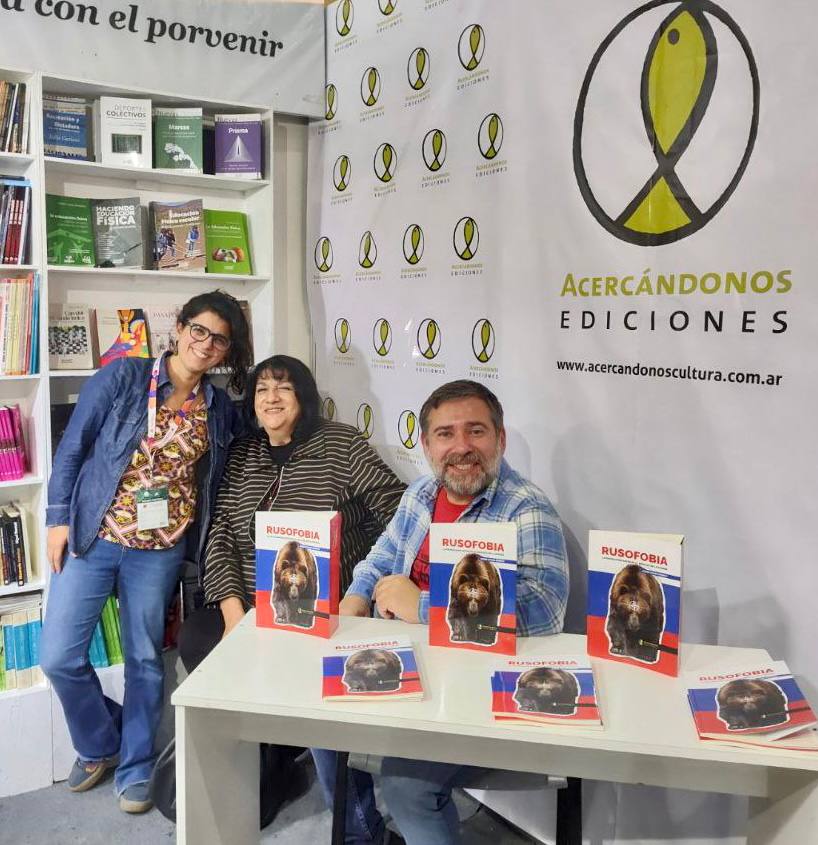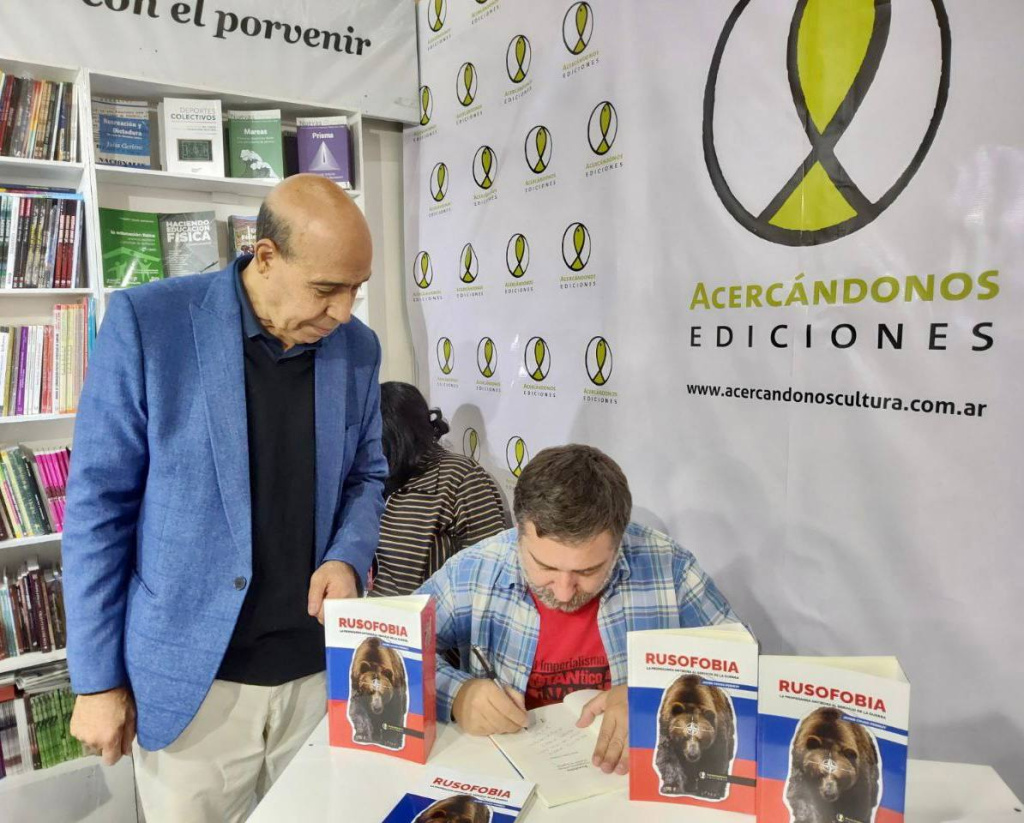Svetlana Smetanina
Spanish politician, member of the European Parliament in 2014-2019 Javier Couso Permuy presented his new book NATO and Russophobia in Madrid. Javier Couso told Russkiy Mir how anti-Russian propaganda and NATO's military strategy are connected.
Picture credit: Javier Couso Permuy Telegram Channel
- Your latest book, titled "Russophobia: Anti-Russian Propaganda in the Service of War," focuses on the connection between NATO and Russophobia. Do you believe that the establishment of NATO can be seen as a natural result of the centuries-old ideology of Russophobia?
- The creation of NATO was conceived as a springboard for American nuclear power in Europe, with the clear intention of containing and defeating the Soviet Union. The words of the first Secretary General of the North Atlantic Alliance are instructive and relevant to this day: "To keep the Russians out, the Americans in and the Germans down.” It is enough to replace word "Soviet" with "Russian" to realize that nothing has changed since the the USSR collapse.
Russophobia is not a novel phenomenon; it has been a recurring element in the domination plans of Anglo-Saxon empires; initially the British and subsequently the American. British and American strategists have consistently identified Russia and its geopolitical sphere as an area that requires control. This perception can be traced back to as early as 1881 when the British government acknowledged the vastness of Russia and its abundant natural resources. This viewpoint persists to this day, with unconcealed intention of fragmenting the country and seizing its resources.
- How was this book created? Is apparently based on the real-life story?
- This book is a fruit of my experience as a member of the 8th European Parliament (2014 – 2019), where I was a Deputy Chairman of the Foreign Affairs Committee and a member of the Subcommittee on Security and Defense. Upon entering parliamentary work, I observed a prevailing atmosphere of intense Russophobia, primarily fueled by deputies from Poland and the Baltic states. What struck me the most was how readily this sentiment was embraced by the majority, despite Spain did not have any aggression towards Russia and its culture. Therefore, I undertook an investigative journey to delve into the historical motivations, underlying forces, and organizations responsible for orchestrating this widespread campaign, which has gained global traction since 2022.
- How were you influenced by the tragic loss of your brother, a journalist who was killed in the American bombing of a Baghdad hotel?
- I was already critical on the U.S. actions around the world, condemning coups d'état, domestic interventions or invasions in which its secret services or armed forces intervened. In fact, I was participating in the larger anti-NATO movement that existed in Spain in the 1980s. It has almost achieved our neutrality during the 1986 referendum. I was deeply shocked by the assassination of my brother and two Al Jazeera and Reuters journalists by the U.S. military, in order to prevent independent information during the invasion of Iraq. From that moment on, I became a fighter against impunity, a geopolitical researcher, and a strong advocate of a multipolar world based on respect between nations.
Picture credit: from Javier Couso Permouille's Telegram channel
- Quite a few people came to your book presentation. Do you think it is a topic of public concern?
- I think that in the face of the tsunami of disinformation practiced by the big Western media and the open censorship by the EU related to the banning of Russian media, there are many people who are asking themselves questions and craving information that comes from different sources. This is the very freedom of information that European institutions are theoretically supposed to protect. And it has always been taken for granted - something inherent in the Western world. Even if they think they can master reason, people are not stupid and greedily seek out points of view other than supposedly democratic censorship.
- Are there plans to release of your book in other Spanish-speaking countries?
- The original version of the book was published in 2019, and it was republished in Argentina in 2023 by
Acercándonos Cultura publishing house. In the future, I intend to complement it with events that took place after the special military operation, which surpassed everything I had already promoted in my book.
- Today in the West we are witnessing a powerful wave of Russophobia, once again. Do you think there is a connection to the events of World War II in Europe?
- The underlying myth of NATO and the perceived need for the U.S. to ensure European security with U.S. nuclear weapon systems deployed in our countries is reinforced by a cultural myth, very well illustrated by the Hollywood Culture Industry. This myth seeks to convince us that the defeat of Nazi barbarism and the liberation of Europe from the Nazis was solely due to efforts on the other side of the Atlantic. To impose this false narrative, they need to change history in a global sense and hide the fact that over 27 million Soviet citizens, most of them Russians, gave their lives to reach Berlin and put an end to the Hitler war machine.
The editorial team of the Russkiy Mir website thanks Victoria Samoilova for her help in arranging the interview.









